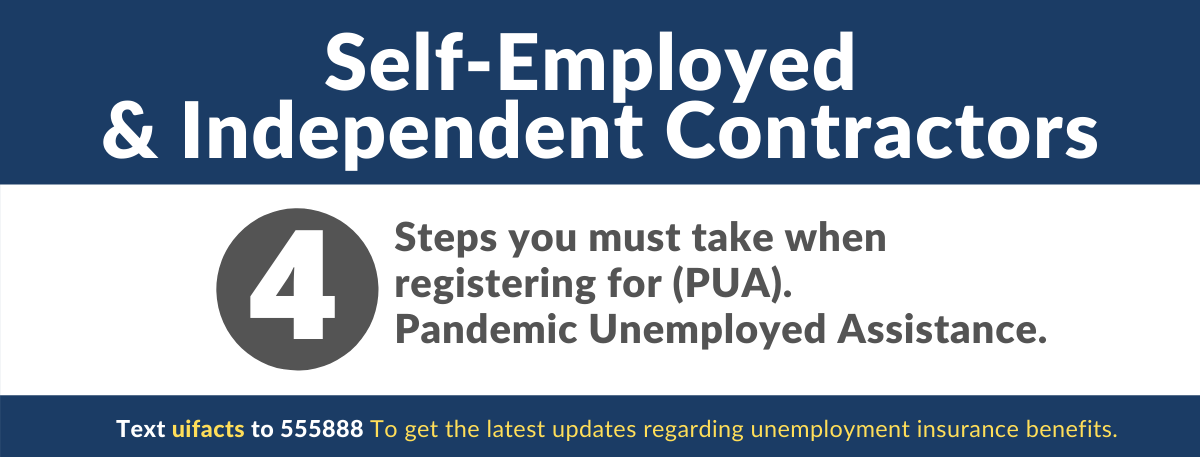In today’s evolving job market, many individuals choose the path of independent contracting for its flexibility and entrepreneurial opportunities. However, one of the challenges that independent contractors face is the lack of traditional employment benefits, such as unemployment insurance. While independent contractors are not typically eligible for regular unemployment benefits, there are alternative programs and options available to provide financial assistance during periods of unemployment. In this comprehensive guide, we will explore the topic of unemployment benefits for independent contractors. Newsmartz will delve into eligibility requirements, alternative programs, and key considerations for independent contractors seeking financial support during periods of joblessness.
Unemployment Benefits for Independent Contractors: A Comprehensive Guide
While independent contractors may not have access to traditional unemployment benefits, alternative programs such as the Pandemic Unemployment Assistance (PUA) offer a lifeline during periods of unemployment. Understanding the eligibility criteria, application process, and available financial assistance options is crucial for independent contractors seeking support. Additionally, establishing financial stability, planning for contingencies, and seeking professional advice can help independent contractors navigate the challenges of unemployment and maintain financial resilience in their self-employed endeavors.
- Understanding Independent Contractor Status:
Before delving into unemployment benefits, it is crucial to understand Unemployment benefits for independent contractor what defines an independent contractor. Independent contractors are self-employed individuals who provide services to clients or businesses on a contract basis. Unlike traditional employees, independent contractors have more control over their work, are responsible for their own taxes, and generally do not receive employee benefits from their clients. - Ineligibility for Regular Unemployment Benefits:
Independent contractors are typically excluded from receiving regular unemployment benefits. Regular unemployment benefits are designed for employees who have been laid off or terminated from their positions. Unemployment benefits for independent contractor are funded by employer contributions and are governed by specific eligibility criteria, which independent contractors do not meet due to their self-employed status. - Alternative Programs for Independent Contractors:
While independent contractors may not be eligible for regular Unemployment benefits for independent contractor benefits, there are alternative programs and options available to provide financial assistance during periods of unemployment. One such program is the Pandemic Unemployment Assistance (PUA) program, which was introduced in response to the COVID-19 pandemic. The PUA program provides unemployment benefits to self-employed individuals, including independent contractors, who are affected by the pandemic. - Eligibility for Pandemic Unemployment Assistance (PUA):
To be eligible for PUA, independent contractors must meet certain criteria. This may include being unable to work or provide services due to COVID-19-related circumstances, such as business closures, reduced hours, or health-related reasons. Additionally, Unemployment benefits for independent contractor must demonstrate that they are available and actively seeking work, as per the requirements of the program. - Applying for Pandemic Unemployment Assistance (PUA):
The process of applying for PUA varies by jurisdiction but generally involves completing an application and providing documentation to support the eligibility criteria. Independent contractors may be required to demonstrate proof of income, such as tax documents or business records, to establish their earnings and validate their self-employment status. It is important to carefully review the application requirements and provide accurate and complete information to ensure a smooth application process. - Duration and Calculation of PUA Benefits:
The duration and calculation of PUA benefits vary depending on the jurisdiction. Unemployment benefits for independent contractor program typically provides a fixed number of weeks of benefits, supplemented by federal funding. The benefit amount is calculated based on the individual’s reported income during a specified period. It is essential to understand the specific guidelines and regulations governing PUA in your jurisdiction to determine the duration and amount of benefits you may be eligible to receive.
- Other Financial Assistance Options:
In addition to PUA, independent contractors may explore other financial assistance options during periods of unemployment. These options include personal savings, emergency funds, loans, grants, or programs specifically designed to support self-employed individuals. It is advisable to research and explore these resources to identify additional avenues for financial support. - Maintaining Financial Stability as an Independent Contractor:
Given the unpredictable nature of independent contracting, Unemployment benefits for independent contractor is vital for individuals in this line of work to establish financial stability and plan for periods of unemployment. This includes creating a robust emergency fund, managing cash flow effectively, diversifying income streams, and investing in insurance products that can provide income protection during unexpected events. - Seeking Professional Advice:
Navigating the complexities of Unemployment benefits for independent contractor and financial planning as an independent contractor can be challenging. It may be beneficial to seek professional advice from an accountant, financial planner, or employment attorney who specializes in self-employment. These professionals can provide guidance on eligibility, assist with application processes, and offer valuable insights into managing finances and mitigating risks.
- Conclusion:
While independent contractors may not have access to traditional unemployment benefits, alternative programs such as the Pandemic Unemployment benefits for independent contractor Assistance (PUA) offer a lifeline during periods of unemployment. Understanding the eligibility criteria, application process, and available financial assistance options is crucial for independent contractors seeking support. Additionally, establishing financial stability, planning for contingencies, and seeking professional advice can help independent contractors navigate the challenges of unemployment and maintain financial resilience in their self-employed endeavors.


:max_bytes(150000):strip_icc()/independent-contractor.asp-FINAL-6904c017dfbf4da18e90cf4db4af91e7.png)
